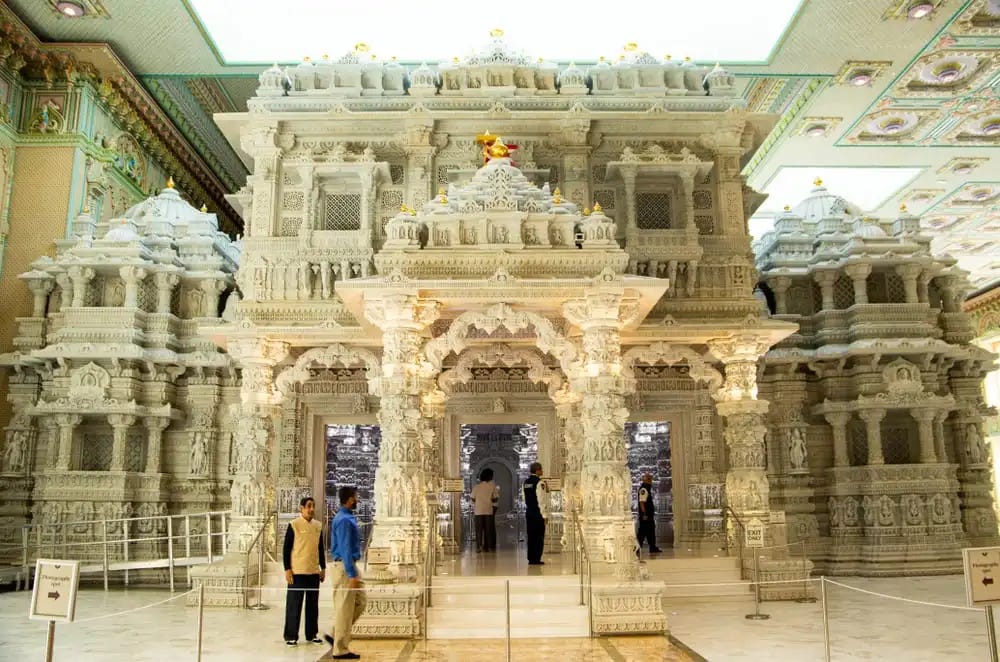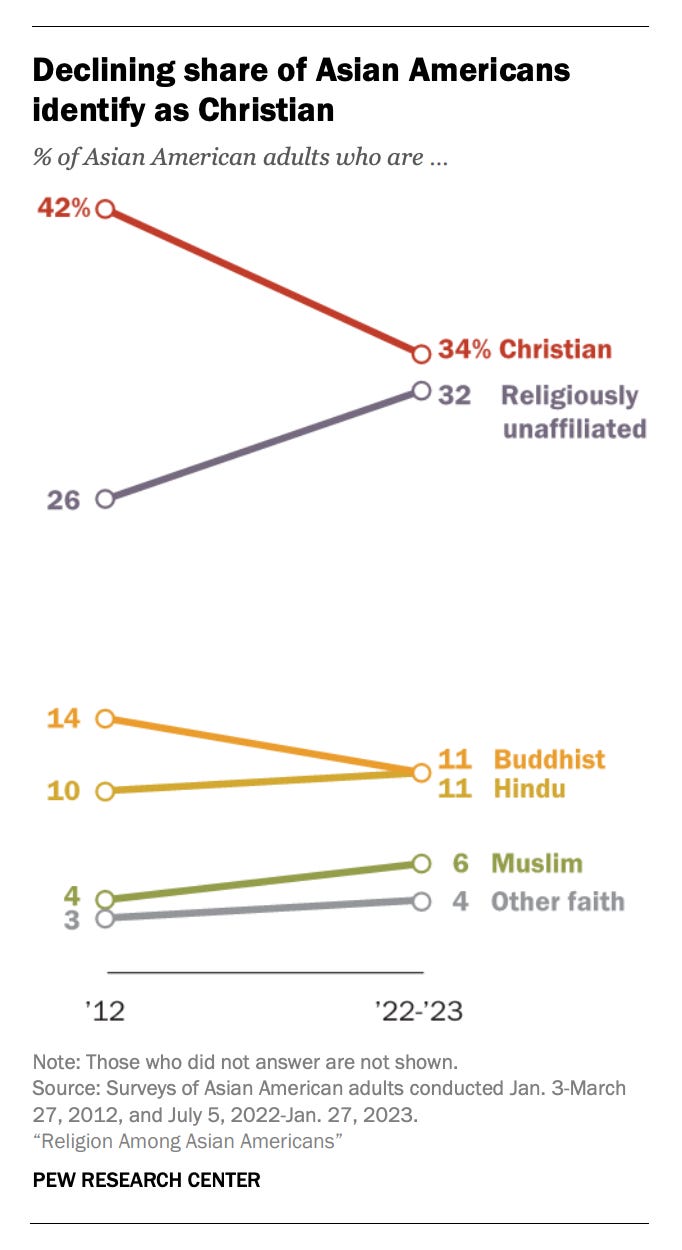Asian Americans are drifting away from organized religion, new survey reveals
The Pew Research Center just unveiled remarkable new data about religion among Asians in America
This newsletter is free, but it’s only able to sustain itself due to the support I receive from a small percentage of regular readers. Would you please consider becoming one of those supporters? You can use the button below to subscribe to Substack or use my usual Patreon page!
Asian Americans, just like others across the country, are ditching Christianity and becoming religiously unaffiliated. That’s the big takeaway from a new report just released by the Pew Research Center.

More Asian Americans than ever before—nearly a third—say they have no religion, even if many of them maintain some ties to their family’s faith.
Over the past decade, the percentage of Asian Americans who identify as Christian has dropped from 42% to 34%. We’ve seen a jump, over the same time period, of religiously unaffiliated Asian Americans from 26% to 32%. There’s been relatively minimal change when it comes to the other popular religious labels, which suggests that the bulk of the “Nones” are coming from the Christian camp.
When you break those numbers down between the various origin groups, though, there’s much more divergence. 59% of Koreans, for example, are Christian while 34% are unaffiliated. Those numbers are nearly reversed for Chinese Americans (23% Christian and 56% unaffiliated). Among Indian Americans, 15% are Christian, 48% are Hindu, 11% are something else, and only 15% are unaffiliated. (That certainly tracks with my anecdotal experience.)
One interesting aspect of the survey is that Pew asked respondents if they actually identified with a faith or if they simply felt “close to” the religion because of family background or culture. For example, 11% of Asian Americans said they identify as Buddhists, but 21% said they just have an affinity to it without necessarily believing in the theological aspects of it. Only 11% of Asian Americans identify as Hindus, but another 6% simply feel close to the religion.
There’s some overlap with the numbers because some people may feel connected to more than one faith. Indeed, 40% of Asian Americans feel close to a religion with which they don’t personally identify. (“Just 12% of Asian Americans say they have no connection to any of the religions or philosophical traditions measured in the survey,” says the Pew report.)
Pew found that 63% of religiously unaffiliated Asian Americans are “close to” at least one faith… which means those familial or cultural ties are the only bond they really have to religion. I would argue the implication here is that we’ll see those bonds continue to break as second and third generation Asian Americans grow up and their (more religious) parents pass away.
There’s one other element that should be concerning to religious people who fear that kind of faith-based drift:
77% of Asian Americans say they would be comfortable if a family member married outside of their faith. This is slightly lower than the share saying they would be comfortable if a family member married someone who is not Asian (86%) or married someone who is Asian but has a different ethnicity (87%)…
Marrying outside the faith means there’s a far slimmer chance of the couples’ eventual children adopting one of their particular religions. If you’re marrying someone who doesn’t share your faith, it’s arguably because religious compatibility isn’t a high priority for you. Shared values matter, sure, but not a particular label. If three-quarters of Asian Americans are okay with a family member marrying outside the faith, that suggests a much wider tolerance for people who are of a different faith or no faith at all. Which means there’s more room for the “Nones” to grow.
Also worth noting is that, while 62% of Asian Americans are under age 50, that number jumps to 73% among the religiously unaffiliated. It’s just a younger group overall. Couple that with the general growth of the “Nones,” and it’s not hard to predict the future. (The Asian American “Nones” are also much more Democratic-leaning than their religious counterparts—71% compared to 62%.)
There are obviously other major shifts that occur as first and second generation Asian Americans drift away first the first half of that label, but the decline of religious affiliation may be the biggest transformation of all.






Less religion for anyone makes the world better for everyone.
Buddha Jesus will be disappointed.
https://www.traditioninaction.org/History/HistImages/G_027_Christ.jpg